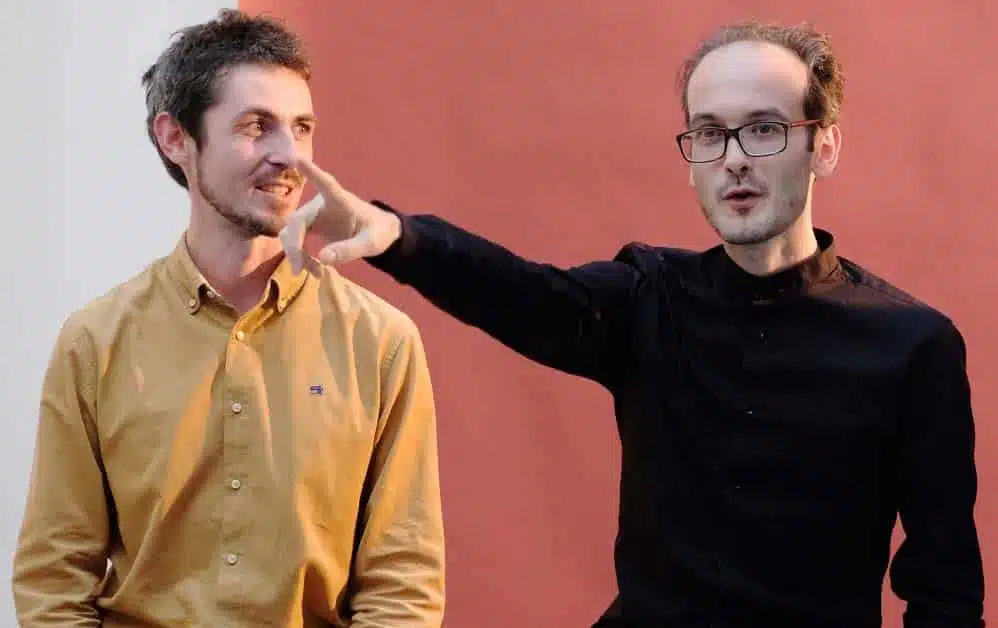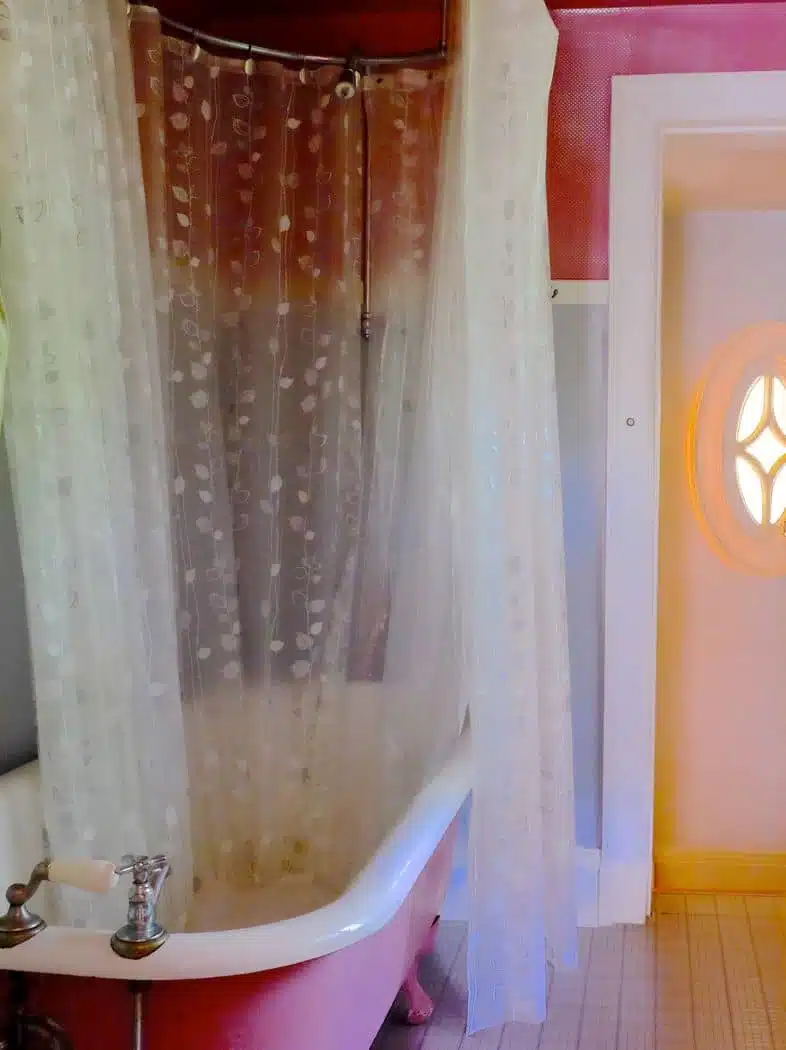One bowl of soup

Written by Grégoire Langouet
Blog | Daily Life Testimonials | Reflections on life | The Dzogchen Journey
This article illustrates the roommate space, with Grégoire and Paul, for unlearning habits… over one bowl of soup!
One bowl of soup
PAUL : “The great thing about sharing a house, or any kind of living space, is that you’re not sovereign. You don’t rule over your territory, you have to share it, enter into cohabitations, dialogues, “syncretizations”. You share space, and you have to unlearn this almost animal-like injunction “this is my place, not yours”. So we thought we’d also share the space of the article, that page where the author too often thinks he’s “captain of his ship”. So, what do you think? Would you like to have dinner with me tonight? I made soup.”
GRÉGOIRE : “What an excellent idea! But as for the soup, I’d rather prefer to postpone it for another time. Right now, I have to concentrate on my work and I prefer to eat alone. Even in a flat-sharing community, we don’t have to see each other every day…”
PAUL : “Okay, I’ll put some in the fridge for you.”
GRÉGOIRE : “Thanks a lot. That’s very kind of you. Let’s have a little chat though! Certainly, the almost animal-like aspect of territory: “this is my home”, “this is mine”, is largely questioned when you live with other people, in a collective or a community. My favorite bowl, given to me by my grandmother, ends up becoming the cat’s bowl. The handle of the beautiful and precious knife my brother gave me for Christmas breaks due to, shall we say… inappropriate use. I’ll spare you the unbelievable details! And to top it all off, it gets thrown in the trash without any remorse… So, living with roommates clearly makes you work on yourself. For example, the attachment we often have to “our” things, to “our” territory, to “my own”.
PAUL : “The great thing about sharing a house, or any kind of living space, is that you’re not sovereign. You don’t rule over your territory, you have to share it, enter into cohabitations, dialogues, “syncretizations”. You share space, and you have to unlearn this almost animal-like injunction “this is my place, not yours”. So we thought we’d also share the space of the article, that page where the author too often thinks he’s “captain of his ship”. So, what do you think? Would you like to have dinner with me tonight? I made soup.”
GRÉGOIRE : “What an excellent idea! But as for the soup, I’d rather prefer to postpone it for another time. Right now, I have to concentrate on my work and I prefer to eat alone. Even in a flat-sharing community, we don’t have to see each other every day…”
PAUL : “Okay, I’ll put some in the fridge for you.”
GRÉGOIRE : “Thanks a lot. That’s very kind of you. Let’s have a little chat though! Certainly, the almost animal-like aspect of territory: “this is my home”, “this is mine”, is largely questioned when you live with other people, in a collective or a community. My favorite bowl, given to me by my grandmother, ends up becoming the cat’s bowl. The handle of the beautiful and precious knife my brother gave me for Christmas breaks due to, shall we say… inappropriate use. I’ll spare you the unbelievable details! And to top it all off, it gets thrown in the trash without any remorse… So, living with roommates clearly makes you work on yourself. For example, the attachment we often have to “our” things, to “our” territory, to “my own”.
PAUL : “With all the roommates I’ve lived with over the last fifteen years, I’ve always observed my ability, despite the change of environment, to bring my own space into it, both inside (my emotions, my habits, my projections), and outside (my objects, my furniture, my way of tidying up). I thought I was changing space! Each time I recreated the same one, just different enough to be able to repeat, to obey the same patterns, injunctions, emotions and habits of life that I had first observed in the first of all my roommates: my parents’!”
(laughs)
GRÉGOIRE : “And when it comes to occupying space itself – physical space, but not only that… – we often have to make concessions, adjustments, give some space to others. In order to do this, we have to make the effort – impossible in itself – to put ourselves in the other person’s shoes, to try to understand his or her perspective, his or her needs and desires. Since we each have our own way of life, sometimes very different from one another – food, schedules, music, the degree of tidiness or cleanliness that is absolutely unobjectionable, etc., etc., we have to learn, willingly or not, not to judge (too much) how others live and behave. What a training in non-judgment and equanimity! Suspension of judgment ! “
(laughs)
PAUL : “It’s so clear! And we generally see that we’re not very well trained in this, and that we even have to start very slowly by considering that “non-judgment” is possible, in our experience of living with roommates, day after day, from unwashed dishes to the guy who throws spontaneous parties at 2am on the very day you have an exam.”
GRÉGOIRE : ” Ah, that smells of experience! Another aspect of living with roommates that I find very enriching, even if it’s difficult, is that over time you see yourself better. You don’t have a choice. Life with a flatmate or any other person with whom you share your living space, like any collective project, is like a mirror. It makes you see your own tendencies and habits. It’s a real eye-opener, a magnifying mirror. Having grown up in the private comfort of my small childhood bedroom – my secret garden – I eventually came to the point where, living in a shared apartment, I hardly had any “private” life at all. Everything can be seen and heard – or almost. Over time, every one of your habits (internal) is revealed in broad daylight (external), as if you were being laid bare. Nothing remains in the shadows. The advantage of this is that, as an apprentice Dzogchen practitioner, it speeds you along the path: a good, hard work on your tendencies! And a certain pacification of emotions, if you want to survive in this form of collective life in the long term… Don’t you have this impression too ? “
PAUL : “Yes, housemates form intense human communities, and are therefore very interesting for Dzogchen practitioners. Wasn’t that the traditional role of monasteries, camps and yogic hermitages? We sometimes get the impression that they’re incubators where we can stay warm and away from problems, but in fact, any center of spiritual practice is a crucible where all the conflicting emotions of humanity bubble up and explode, a place-mirror that reflects back to you all your projections onto yourself and others. So, if you come to this kind of place to avoid looking at your own problems, it probably won’t work; but if, on the contrary, you’ve engaged in a real dynamic of introspection, every event in community life becomes rich in meaning and teachings. As private space becomes more relative, shared space becomes the place to experiment with the relativity of the “I” and its illusory possessions.”
GREGOIRE : ” Your comparison with monasteries is really interesting, especially at a time when they are dying out, or almost dying out, in Western Europe; and when the civilization of the Netflix-pizza-pyjama cocoon seems to be taking over. I’m caricaturing… but not that much! Everyone in their own bubble, their own safe space, where it’s more secure. We saw that with Covid. So, sharing a living space is a new form of monastic life? Well, in some ways… And it’s not for nothing that many of the communities of the 1960s-70s were influenced by the life of monasteries or even early Christian communities. There’s a lot to be said about this… Although Dzogchen as such doesn’t need a monastery or a particular way of life to be practiced, since it adapts to all conditions. On the other hand, sometimes certain conditions can help… But I’m afraid I’m going on too long and not giving you enough space, so the floor is yours! “
PAUL : “Throughout Europe, and especially in Belgium, we have the example of the beguinages, women who decided to live together, without a male protector – and therefore outside the patriarchal system – in order to dedicate themselves to spiritual practice. Some of the great figures of Belgian mysticism were born thanks to these communities: Marguerite Porete, Hadewijch d’Anvers… These people who committed themselves to recreating a living-together centered on a primordial dimension, under a spiritual roof, seem to me to be useful examples in our disintegrating times, when the very individual finds himself cut off from himself.”
GREGOIRE : ” Do you also think of Christina the Astonishing? Even Nick Cave wrote a song about this strange saintly woman from near Liège. Thought to be dead, she came back to life to cleanse the souls of the living and lead them to God after visiting hell, purgatory and heaven. It reminds me a little of the Tibetan délog [1] (tib. ‘das log), often women who, in a cataleptic state, make this kind of “journey” and return laden with messages for their community… A deep personal inner exploration – at this point, they show no outward signs of life – which then has an influence on the whole life of the community. But living together around this primordial dimension you mention has become very rare these days, and very difficult when attempted… It’s often for entirely different reasons that we live together as a community: economic, emotional and so on. Do you think we should take inspiration from these holy women for our community life?”
PAUL : ” Let’s just say that even though the figures of the saints can be inspiring, they do have their limits in our current cultural conditions… What interests me is that these mystical communities have their relevance within the framework of Dzogchen practice, because they have gathered around a common spirit of contemplative practice. It’s not a matter of reinvesting a concept of “monastic rule”, but of refocusing our individuality on our fundamental goodness, while maintaining practices of ethical introspection and mutual listening, what in Tibetan is called “Lojong” (tib. blo sbyong), “training of the mind”. Training the mind means working on oneself in relation to others, within the framework of primordial experience. Are you sure you don’t want any soup? “
GREGOIRE : ” And you’re talking about Tibetan Buddhism now with your Lojong, not radical Dzogchen! (laughs) But these very concrete exercises are certainly invaluable when it comes to living with others. They turn all your selfish habits upside down! Sometimes I joke with my partner: “If it weren’t for this, we wouldn’t be together anymore”! These little “tricks” of the mind, to be applied in all circumstances, these little jewels of “technics-undistinguishable-from-life”, are very simple and yet very powerful for better living together. Without them, many Tibetan monasteries would not have survived! I’m just speculating… But putting this ultimate, primordial, essential aspect – or whatever you want to call it – of our existence at the center of our lives is often not easy in collective life. We’re preoccupied with all kinds of so-called more urgent or more important problems, which very often put the “self” in the foreground and prevent us from stepping back. This prevents us from finding the space to see what really matters in the mirror of death, and to catch a glimpse of that dimension which is the source of everything, the basis of everything, and which is no longer even a dimension….”
PAUL : ” What’s interesting about Lojong is the dialectic between the presentation of the nature of mind and concrete ethical work on our egocentric tendencies. Geshe Shekawa (12th century), in The Seven-Point Mind Training, writes as much about “Penetrate the prime aspect of unborn primordial evidence” as he does about “Don’t talk about other people’s faults”, or “Don’t make your happiness out of other people’s misfortune”.
GREGOIRE : ” And among these exercises and other little mnemonic phrases that have helped me a lot, there are those from 37 practices of the bodhisattavas (or beings of awakening) by Gyalsé Thogmé (14th century), a kind of commentary on Chekawa’s text, and in particular this simple little phrase: “even if…” Whatever happens (“even if…”), it’s a poor excuse not to act from that fundamental goodness you were talking about, or to forget the nature of the mind… In essence, and from what I remember: “Even if someone you’ve cherished as your own son, insults you unfairly in public, consider him as the dearest being, praise his qualities, etc. : such is the practice of all enlightened beings.”
To put it simply: always put the other person first, before yourself. One of the essential practices of Lojong: take defeat upon yourself, offer victory to others. Of course, this may seem extreme in our conditions, and we need to be patiently guided in these practices… but on trial, they can prove extremely beneficial to ourselves and for all the others we live with…
Will you finish the soup? “


